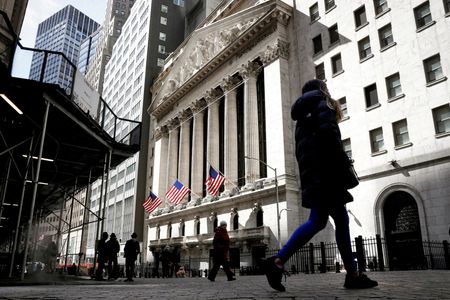 1
1 1
1

LONDON (Reuters) – Global securities regulators began reviewing on Thursday whether to toughen up operational resilience at exchanges and other market infrastructure in light of the extreme trading volatility in 2020 when economies went into lockdown to fight the pandemic.
While much trading is already electronic, the curbs led to the New York Stock Exchange and London Metal Exchange temporarily closing their floors at a time when trading in markets was at its most volatile since Black Monday in 1987 in the United States.
Current resilience requirements for exchanges, clearing houses and settlement systems worked well, but there are opportunities for further improvements, the International Organization of Securities Commissions (IOSCO) said in a statement.
There is a need for greater automation and less dependence on physical documents and manual processes to better accommodate people working from home, said IOSCO, which groups market regulators from the United States, Europe, Asia and Latin America.
Business continuity plans of some firms did not anticipate how to deal with access to primary and back up sites not being available for a prolonged period, IOSCO added in a paper out to public consultation.
Many businesses are expected to return to a “hybrid” mix of employees splitting their time between the office and home, which raises similar challenges as full time remote working, IOSCO said.
“As large scale remote and hybrid working are new for many regulated entities, the risks and controls are still being evaluated and tested,” it said.
Market infrastructure firms should re-evaluate and update their business continuity plans, IOSCO said.
(Reporting by Huw Jones; Editing by David Gregorio)